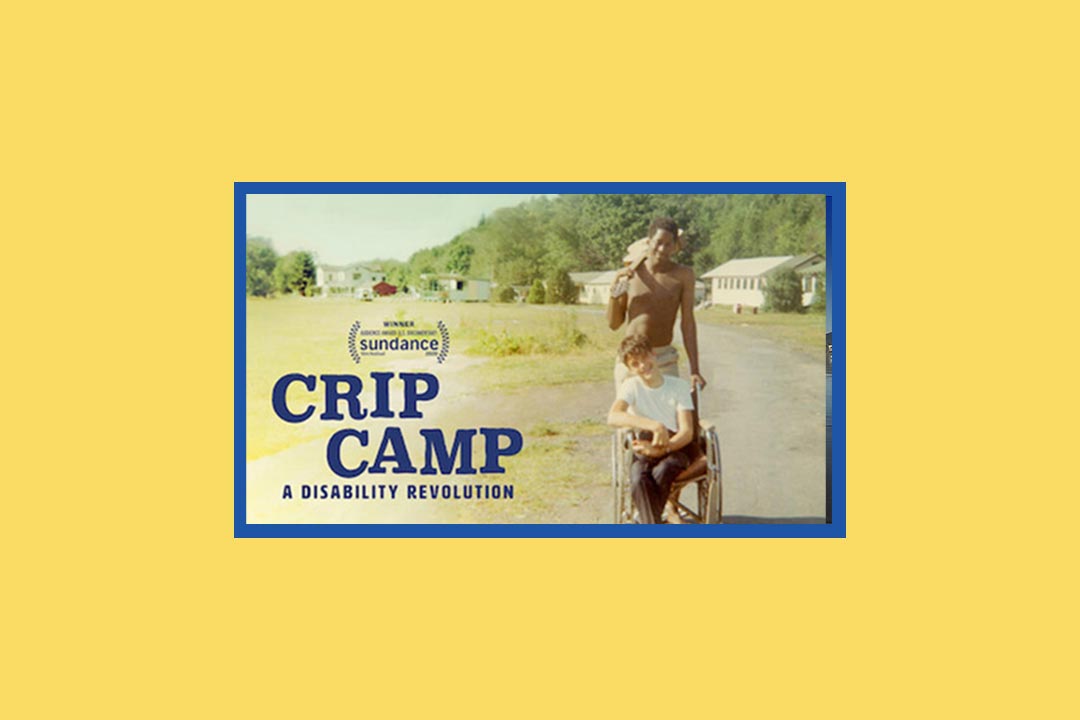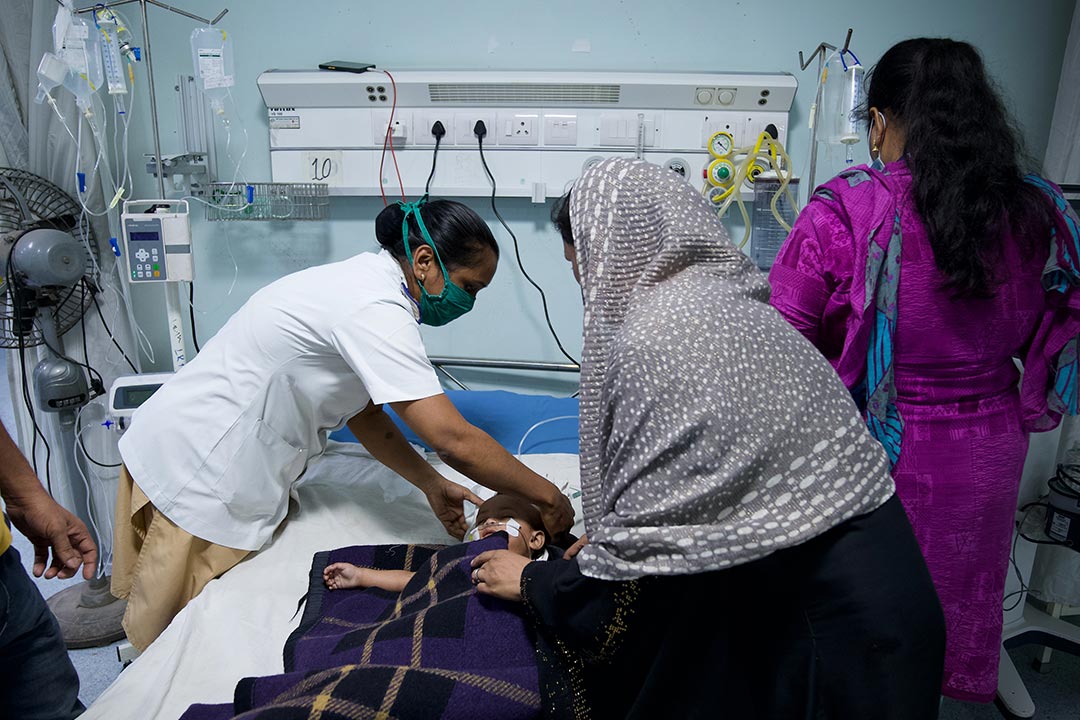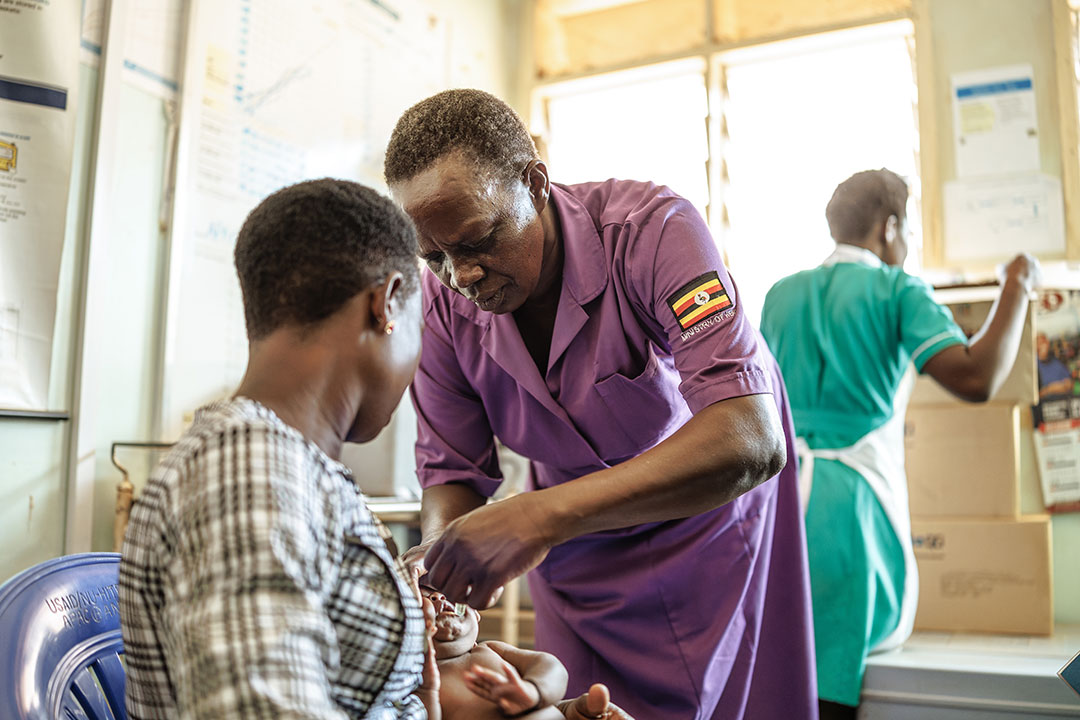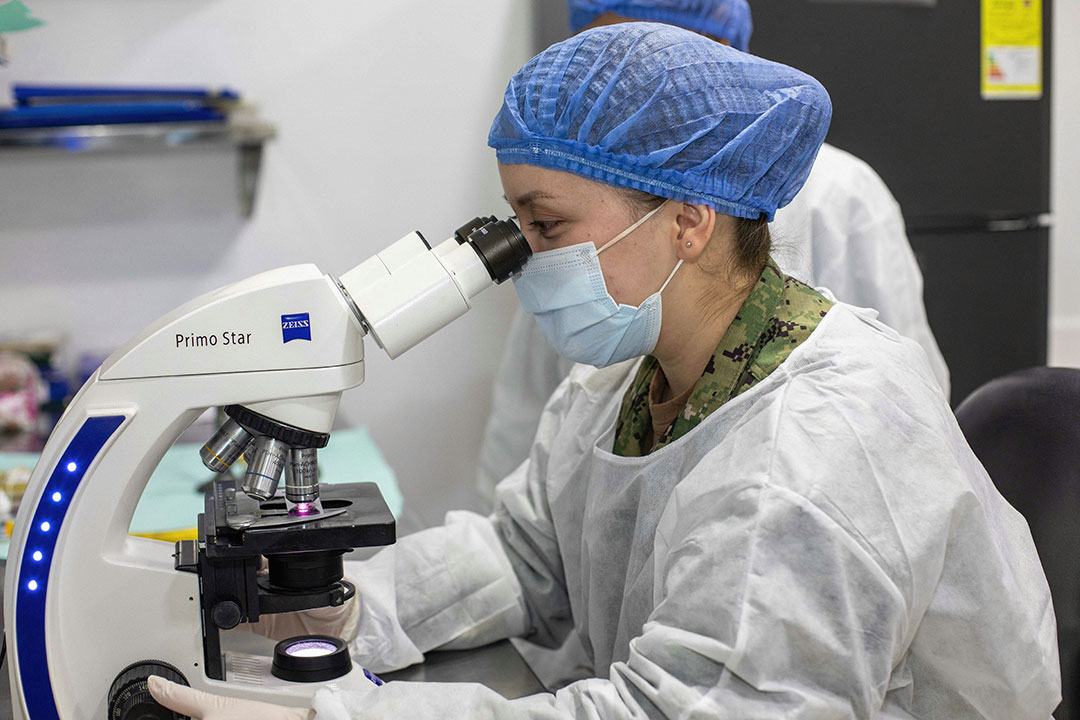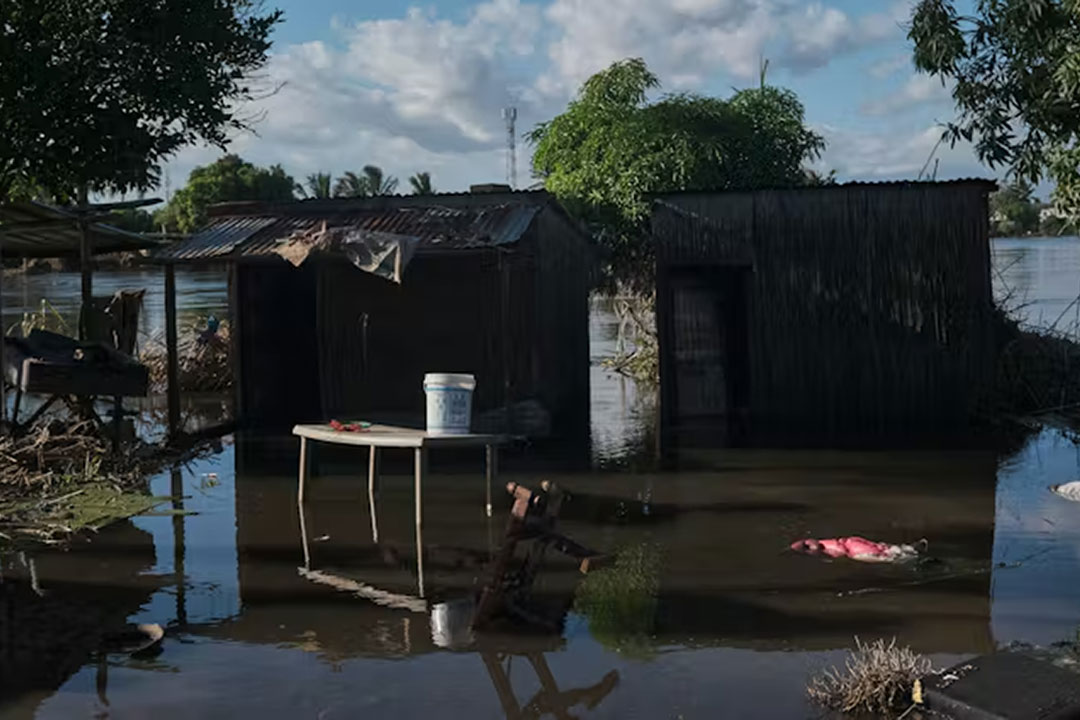Polio is haunting Gaza as vaccination campaign resumes
If the second vaccine dose is not administered soon, Palestinian children will face yet another threat to life and limb.
- 1 November 2024
- 5 min read
- by Amanda Tschopp
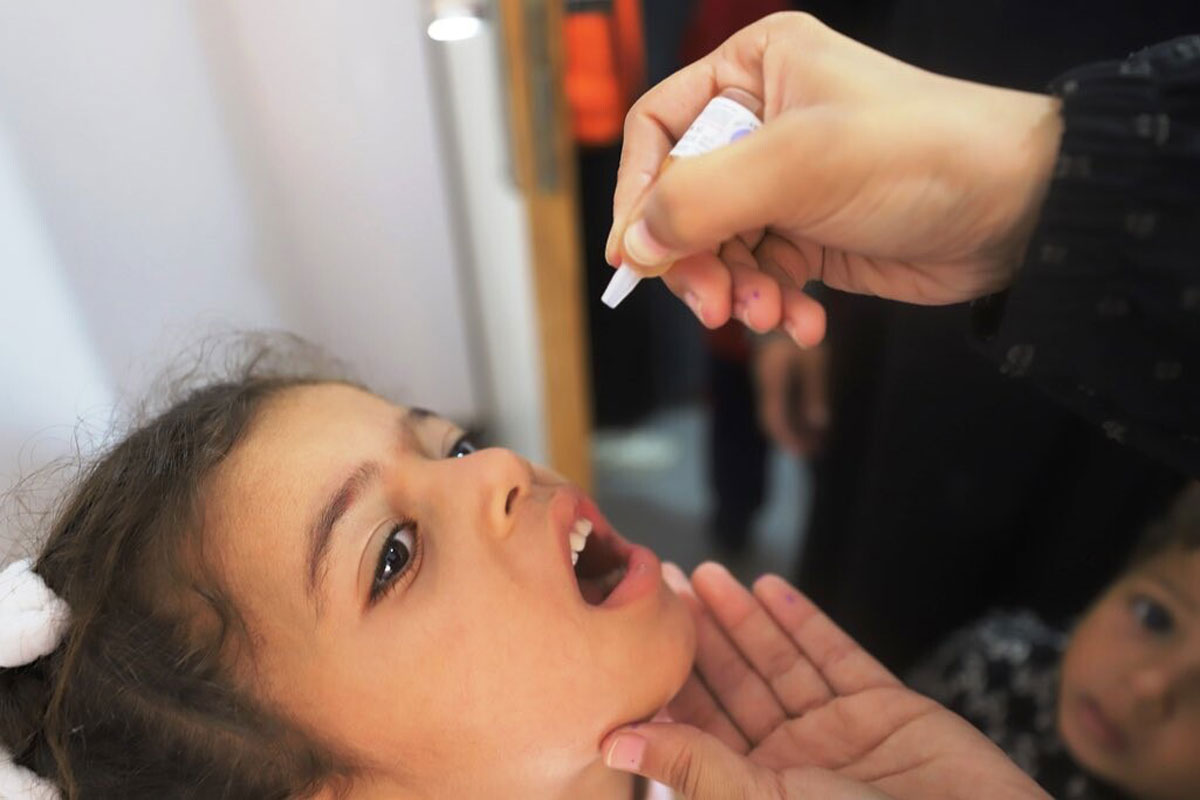
Editor’s note: This article was updated on 4 November 2024 to include information about the 2 November 2024 attack on the polio vaccination campaign.
In September, the global health community celebrated a small victory amid the ongoing destruction in Gaza: more than 500,000 children aged under ten in central, southern and northern Gaza were vaccinated against polio – a highly contagious viral infection, mainly affecting children aged under five, which can lead to paralysis or even death.
The vaccination campaign was part of an urgent response to prevent the spread of polio after circulating variant poliovirus type 2 (cVDPV2) was detected in Gaza, which had been polio-free for 25 years. It was the first phase of a two-round polio vaccination campaign in Gaza – made possible by a ‘humanitarian pause’ agreed and respected by all parties.
“It has been extremely encouraging to see thousands of children being able to access polio vaccines, with the support of their resilient families and courageous health workers, despite the deplorable conditions they have braved over the last 11 months. All parties respected the humanitarian pause and we hope to see this positive momentum continue,” said Dr Richard Peeperkorn, World Health Organization (WHO) Representative for the occupied Palestinian territory, in a news release on 4 September.
The second round begins
And that’s when the clock started ticking on the second round of the polio vaccination campaign. Interrupting poliovirus transmission requires at least 90% of children to receive a minimum of two doses of novel oral polio vaccine type 2 (nOPV2) vaccine. As indicated by campaign partners, the second dose should be administered within a six-week window. If it’s not, immunity is reduced, and the spectre of polio intensifies, given the severely disrupted health, water and sanitation systems in the Gaza Strip.
The second round of polio vaccination began on 14 October, as announced by vaccination campaign partners, the Palestinian Ministry of Health, the World Health Organization (WHO), UNICEF and the United Nations Relief and Works Agency (UNRWA). And WHO and UNICEF renewed "their urgent request to all parties to the conflict to implement the necessary humanitarian pauses in Gaza for this second round”.
“It has been extremely encouraging to see thousands of children being able to access polio vaccines, with the support of their resilient families and courageous health workers.”
- Dr Richard Peeperkorn, World Health Organization (WHO) Representative for the occupied Palestinian territory
Mounting a children’s vaccination campaign in the midst of a military offensive requires astonishing coordination and dedication: town criers with megaphones, radio spots and text messages, cold chain equipment and training of health and community workers. All this in a place where nearly a thousand health care workers have been killed while health care infrastructure has been destroyed. Despite the obstacles, the second round was a remarkable success in central and southern Gaza.
Campaign postponed
On 23 October, the campaign was postponed in the third and final phase, which aimed to vaccinate 119,279 children across northern Gaza – citing escalating violence, intense bombardment, mass displacement orders and lack of assured humanitarian pauses across most of northern Gaza.
This means that children in northern Gaza who received a first nOPV2 dose are not fully protected against polio until they receive their second dose. And time is running out. As WHO Secretary-General Dr Tedros Adhanom Ghebreyesus wrote on X.com, “Having a significant number of children miss out on their second vaccine dose will seriously jeopardize efforts to stop the transmission of poliovirus in Gaza.”
On 1 November, WHO and UNICEF issued a joint statement that a humanitarian pause has been granted in order to begin a third phase of the polio vaccination campaign on 2 November in Gaza City.
WHO, UNICEF and partners have put in place robust microplans, but the aim to reach an estimated 119,000 children with their second nOPV2 dose is now unlikely due to access constraints – as around 15,000 children in northern Gaza towns “still remain inaccessible and will be missed during the campaign, compromising its effectiveness”. As WHO and UNICEF put it in an earlier statement, “A ceasefire is the only way to ensure public health security in the Gaza Strip and the region.” And their call for a ceasefire was echoed in a 1 November statement by the principals of the Inter-Agency Standing Committee (ISAC).
On 2 November, Dr Tedros issued a statement that a primary health care centre was struck while parents were bringing their children for polio vaccination – injuring six people, including four children. “This attack during a humanitarian pause, jeopardises the sanctity of health protection for children and may deter parents from bringing their children for vaccination,” Dr Tedros wrote on X.com. “These vital humanitarian-area-specific pauses must be absolutely respected. Ceasefire!”
Also on 2 November, UNICEF Executive Director Catherine Russell issued a statement that the personal vehicle of a UNICEF staff member working on the polio vaccination campaign came under fire while driving – damaging the car, but not injuring the staff member.
In the same statement, Russell averred, “This has already been a deadly weekend of attacks in North Gaza. In the past 48 hours alone, over 50 children have reportedly been killed in Jabalia” – this after nearly 17,000 Palestinian children have been killed in Gaza and the West Bank since October 2023. (Sources: Al Jazeera and UNOCHA.)
“Having a significant number of children miss out on their second vaccine dose will seriously jeopardize efforts to stop the transmission of poliovirus in Gaza.”
- WHO Secretary-General Dr Tedros Adhanom Ghebreyesus
Have you read?
Support in case of further outbreaks
In early October, Gavi announced US$ 20 million in new funding to help address the urgent health and humanitarian crisis in Palestine and for the Palestinian refugees in Lebanon – including the procurement of routine vaccines and technical assistance through UNICEF.
Tito Rwamushaija, Head of Middle-Income Countries Engagement at Gavi, the Vaccine Alliance, avers that Gavi is closely monitoring the epidemiological situation in Gaza: "In the event of a cholera or meningitis outbreak, Gavi has approved a waiver to enable Palestine to access vaccines at no cost through the Gavi-funded emergency stockpiles managed by WHO’s International Coordinating Group (ICG) on Vaccine Provision.
"We sincerely hope there are no such outbreaks, but it does provide reassurance that there is a support mechanism ready in case of emergency."
Given the scale of the health and humanitarian crisis in Gaza, the efforts to protect children from vaccine-preventable disease may seem secondary to other imminent threats. But Palestinian children deserve the same protection from deadly and debilitating diseases as they do from bombs and famine.
In the words of Dr Tedros, “Ultimately, the best vaccine for these children is peace.”
